Echo and larsen, what could be more normal for a chess course!
During the session, the clerk found his microphone out of order and had to endure a few remarks such as: "my congratulations to Madam"! [french joke]
The regulars were all present to listen to the good word of the Master, always at the top as you will be able to see it by reading the report below.
Master's words
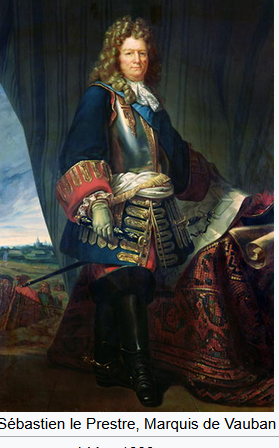
"I have married twice, both disasters: my first wife left, the second remained" (F. Blanche).
"Examine therefore boldly and severely, low all tenderness, for I dare to tell you that, on the fact of a very exact probity and sincere fidelity, I fear neither the King, nor you, nor the whole human race together. Fortune has made me the poorest gentleman in France, but as a reward, it has honoured me with a sincere heart, so free from all sorts of knavery that it cannot even suffer the imagination of it without horror" (S. Le Prestre, Marquis de Vauban, letter to Louvois, 1671).
"Patt sir! -- Patzer yourself" (J.Mieses).
"Chess makes a man wiser and clearer" (Vladimir Putin, who does not specify how Kasparov was before playing chess).
News: read on the internet a festival of nonsense about the next world championship match.
"Carlsen remains favourite for many reasons, the main one is that he has a good score against Caruana! ". Spassky had a very "good score" against Fischer until July 1972.
"It is assumed that Caruana might be better in some pure calculation positions, such as those with opposite castling attacks, but this is not proven". The opposite is even less proven: when does MC win by "opposite castling attack"?
"The advantage of Carlsen is that he is more a natural player, who plays with his intuition and feeling, while Caruana is a formidable chess machine, good in opening, calculation, endgame, positional play, but sometimes lacking some cogs, what we can call "game intelligence": choice of opening, time management, psychology of the opponent... which make chess not a simple mathematical discipline". If Caruana was "good in the endgame" and had a "mathematical" vision of Chess, he would certainly not have let escape his qualification 2 years ago, simply because he was unaware of Philidor's win with rook and bishop against rook. We can hope that he has since learned this.
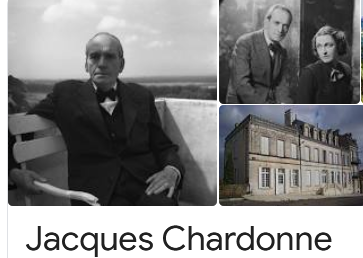
And MC showed perfectly against a Chinese (two successive defeats with White) what his "game intelligence" was when all he needed was precisely a good "intuition" to guess what could happen. Finally, I do not know that his "opening choices" are so refined.
Conclusion: you can find the best and the worst on the internet; lately, it's hardly the best. But "one should never complain, there is always worse" (J. Chardonne).
"It's no secret to anyone that in our day, FIDE has become a collection of incompetent bureaucrats, who have lost all connection, either with those who love chess or with the professionals: they work only for their own profit" (M. Dvoretzky).
"...How irrelevant I consider the direct comparison between champions of vastly different eras" (J. Watson). This last quotation is in response to those who have just re-launched the imbecilic "greatest player in history" formula.
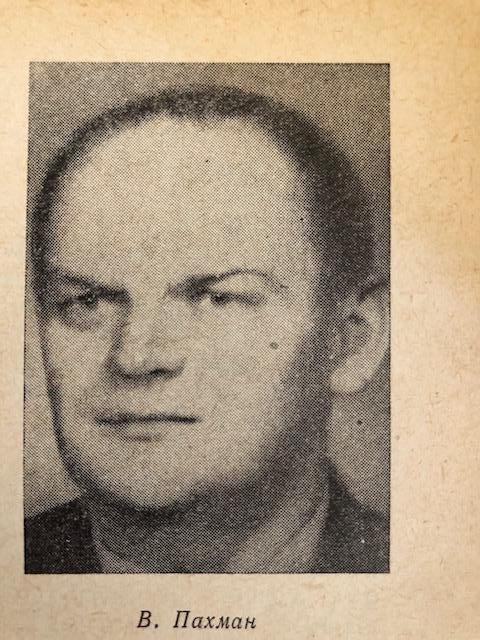
The stalemate is in the spotlight on this day. A small exercise with pawn-Bishop against Queen where one must be wary of a bad use of the knowledge acquired on the "good" and the "bad" side: one must first go from the bad side to find oneself on the good side at the right moment! Then a cute Alsatian study with an echo, an incredible nailing pat and another in the middle of the desert: the mirror after the anti-mirror. Finally, how to cancel with one less Bishop: where a rescue discovered in 1974 is "anticipated" by a 1955 game. It is good to evoke this kind of example (among thousand), at the time when many players tend to consider that Chess began with them, or their generation.
As homework, a study given in a recent solution contest and nevertheless very accessible. The two others are to transpose in the good Queen or Pawn endgame.
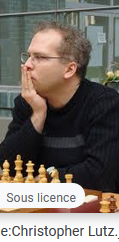
Today's game is typical of the 12th World Champion. He sacrifices a rook against a bishop (an "exchange", as they say) apparently to get a comfortable defence. But in reality... for the win, as his 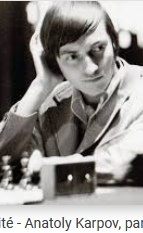 astonished opponent discovers. He will have to play precisely in discomfort the next 50 moves, without being able to establish which is the last mistake, at which moment the game becomes unplayable. As in the previous lesson (Rb5!), there is a key move which returns obsessively: the pawn sacrifice defence e4-e5! which transforms the big piece of wood d3 into a real Bishop. Karpov, with White, would not have missed it, nor would Tal or Spassky.
astonished opponent discovers. He will have to play precisely in discomfort the next 50 moves, without being able to establish which is the last mistake, at which moment the game becomes unplayable. As in the previous lesson (Rb5!), there is a key move which returns obsessively: the pawn sacrifice defence e4-e5! which transforms the big piece of wood d3 into a real Bishop. Karpov, with White, would not have missed it, nor would Tal or Spassky.
Twelve attempts, twelve different refutations by the great French specialist in the first 2#. A lot of spectacular also in the next part, which was particularly well supplied. The two 3# have been submitted to recent resolution contests, good luck for the 2nd! You should take it easy with the first 4#. The second can be summed up as strategy, sacrifice and nice mate. The 5# manoeuvre is a bit more convoluted than the one that immediately comes to mind. As for the 6#, it seems that it was liked since it was... recomposed several times! Remember that in a 2.5# helpmate, White starts. The 3rd helpmate was underjudged (one more). But in this course, prizes and mentions are never given, only beauty counts, which has no price. A long Finnish helpmate and finally, a selfmate of "Gam" from which I forgot to remove the solution.
There are still good judges! The Heinonen problem selected by your master-bidon (see here) has just been awarded a first prize by judge James Quah, a brilliant problem solver who is a regular on our course. In addition, two Turnbulls, presented on 10 June 2014 and 15 December 2015, received honourable mentions.
Have a good time. See you at the end of June or beginning of July for the last course before the summer holidays, if Deus vult.
Add a comment